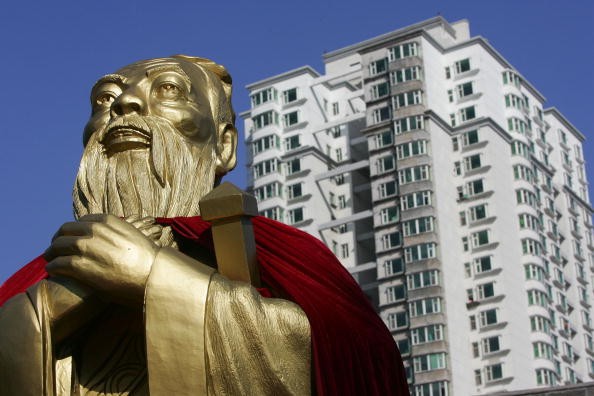A Chinese publisher is set to release the Analects of Confucius, a collection of ideas and sayings from the renowned Chinese philosopher, in five languages for countries under the Belt and Road initiative this year.
The Qingdao Publishing Group in eastern China's Shandong Province has partnered with the China Confucius Foundation to complete the translation and publication of the collection in Arabic, Mongolian, Czech, Portuguese and Spanish languages, the state-owned Xinhua News Agency reported on Monday.
Wang Daqian, president of the China Confucius Foundation, said the translation will be distributed to countries along the Belt and Road through the foundation and Confucian institutes abroad.
"The thoughts of Confucius constitute the root of Chinese traditional culture and have profoundly influenced Chinese society over the past 2,500 years," Wang told Xinhua.
"Confucianism has contributed much to mankind's culture," he added.
Born in 551 B.C. near the modern-day town of Qufu, Shandong Province, Confucius founded the school of thought that influenced later generations of scholars and became known in the West as Confucianism.
He is also recognized to be the first person to establish private schools in China that accepted students from various social classes and is credited for authoring and editing many classical Chinese texts.
The Analects are a compilation by Confucian scholars containing a collection of his famous sayings, including "Do not do to others what you don't want to be done to you" and "How happy we are to have friends from afar," as well as reflections on his political views, moral principles, and ideas on education.
The book has been translated into various languages including English, Japanese, Russian, Korean, French, and German.
China announced the Belt and Road framework in 2013, seeking to build a trade and infrastructure network linking Asia with Europe and Africa via the ancient Silk Road trade routes. Since then, the initiative has been credited with boosting trade and investment between China and economies along the routes.
According to a report from China's commerce ministry, the country's combined exports with economies along the Belt and Road reached 6.3 trillion yuan ($912 billion) in 2016, an increase of 0.6 percent from 2015.
Chinese businesses have also invested a total of $18.5 billion in 20 countries along the routes, generating nearly $1.1 billion in tax revenue and 180,000 jobs in those countries.



























